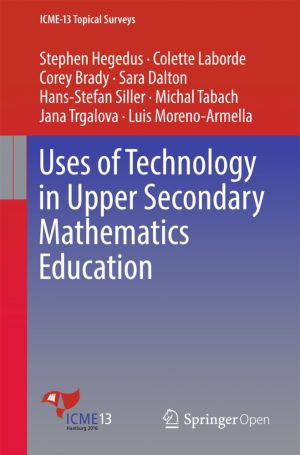Uses of Technology in Upper Secondary Mathematics Education
by Stephen Hegedus, Colette Laborde, Corey Brady, Sara Dalton, Hans-Stefan Siller, Michal Tabach, Jana Trgalova, Luis Moreno-Armella
DescriptionDetailsHashtagsReport an issue 






Book Description
This survey addresses the use of technology in upper secondary mathematics education from four points of view: theoretical analysis of epistemological and cognitive aspects of activity in new technology mediated learning environments, the changes brought by technology in the interactions between environment, students and teachers, the interrelations between mathematical activities and technology, skills and competencies that must be developed in teacher education. Research shows that the use of some technologies may deeply change the solving processes and contribute to impact the learning processes. The questions are which technologies to choose for which purposes, and how to integrate them, so as to maximize all students' agency. In particular the role of the teacher in classrooms and the content of teacher education programs are critical for taking full advantage of technology in teaching practice.This open book is licensed under a Creative Commons License (CC BY). You can download Uses of Technology in Upper Secondary Mathematics Education ebook for free in PDF format (0.7 MB).
Book Details
Title
Uses of Technology in Upper Secondary Mathematics Education
Subject
Science and Mathematics
Publisher
Springer
Published
2017
Pages
43
Edition
1
Language
English
ISBN13
9783319426105
ISBN10
3319426109
ISBN13 Digital
9783319426112
ISBN10 Digital
3319426117
PDF Size
0.7 MB
License

Related Books
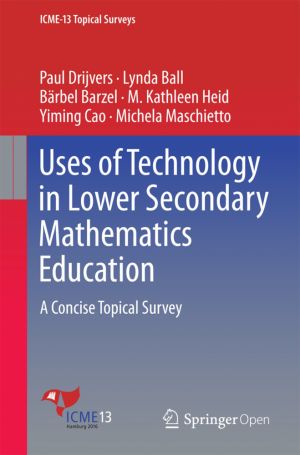
This topical survey provides an overview of the current state of the art in technology use in mathematics education, including both practice-oriented experiences and research-based evidence, as seen from an international perspective. Three core themes are discussed: Evidence of effectiveness; Digital assessment; and Communication and collaboration....
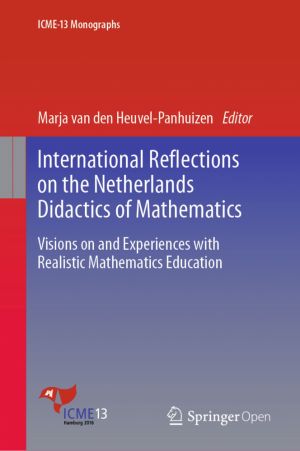
This book, inspired by the ICME 13 Thematic Afternoon on "European Didactic Traditions", takes readers on a journey with mathematics education researchers, developers and educators in eighteen countries, who reflect on their experiences with Realistic Mathematics Education (RME), the domain-specific instruction theory for mathematics educ...
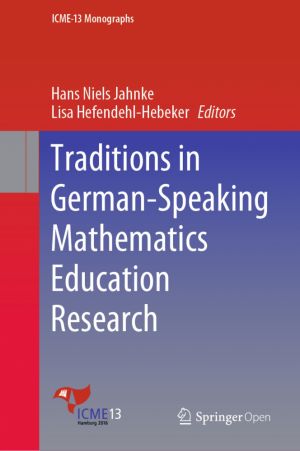
This book shares revealing insights into the development of mathematics education research in Germany from 1976 (ICME 3 in Karlsruhe) to 2016 (ICME 13 in Hamburg). How did mathematics education research evolve in the course of these four decades? Which ideas and people were most influential, and how did German research interact with the internation...
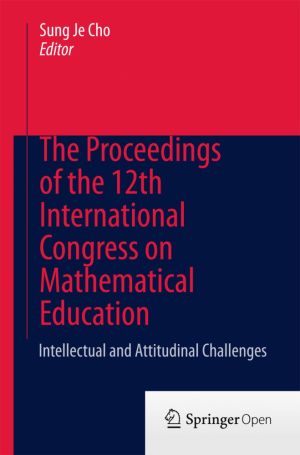
This book comprises the Proceedings of the 12th International Congress on Mathematical Education (ICME-12), which was held at COEX in Seoul, Korea, from July 8th to 15th, 2012. ICME-12 brought together 4700 experts from 100 countries, working to understand all of the intellectual and attitudinal challenges in the subject of mathematics education as...
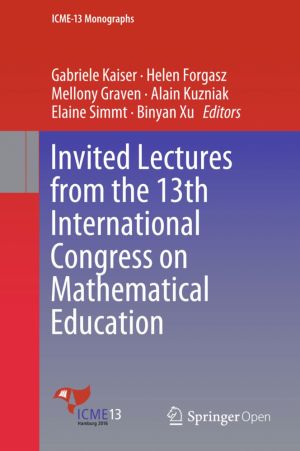
The book presents the Invited Lectures given at 13th International Congress on Mathematical Education (ICME-13). ICME-13 took place from 24th- 31st July 2016 at the University of Hamburg in Hamburg (Germany). The congress was hosted by the Society of Didactics of Mathematics (Gesellschaft für Didaktik der Mathematik - GDM) and took place under the...
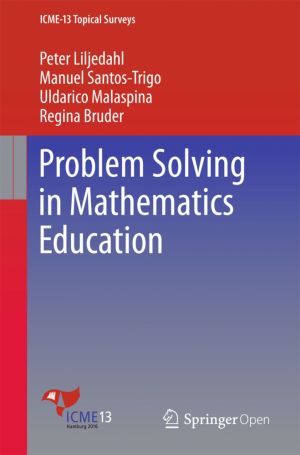
This survey book reviews four interrelated areas: (i) the relevance of heuristics in problem-solving approaches – why they are important and what research tells us about their use; (ii) the need to characterize and foster creative problem-solving approaches – what type of heuristics helps learners devise and practice creative solutions; (iii) t...

